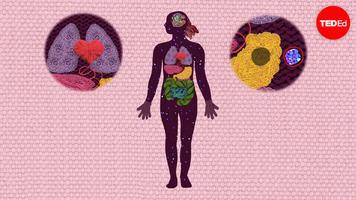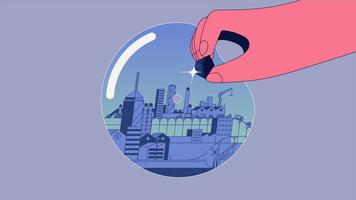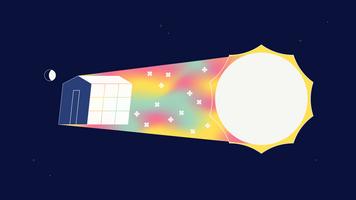George Zaidan: Why your phone battery gets worse over time
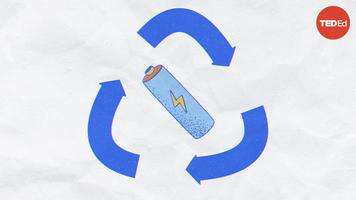
Almost all batteries, even single-use batteries, are theoretically rechargeable. That's because the metals and other chemicals are still there in the battery. So chemically speaking, a dead battery is actually not that different from a fresh one. Then why do batteries die in the first place? And what should you do with them once they're spent? G...
George Zaidan: What is fat?
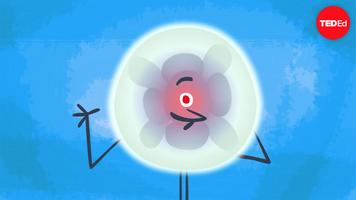
As the narrative goes, fat is bad. Well, it's actually more nuanced than that. The type of fat you eat is more impactful on your health than the quantity. George Zaidan examines triglycerides, the varied molecules that make up fat, and how to identify which types of fat you are consuming. [Directed by Igor Coric, narrated by George Zaidan].
George Zaidan: Why is ketchup so hard to pour?
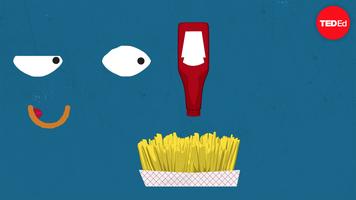
Ever go to pour ketchup on your fries...and nothing comes out? Or the opposite happens, and your plate is suddenly swimming in a sea of red? George Zaidan describes the physics behind this frustrating phenomenon, explaining how ketchup and other non-Newtonian fluids can suddenly transition from solid to liquid and back again. [Directed by TOGETH...
George Zaidan: The bug that poops candy
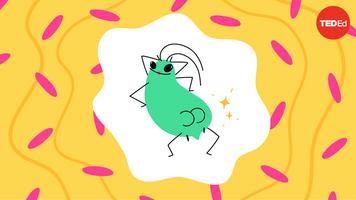
Aphids can reproduce incredibly fast: they can make 20 new generations within a single season. And that means lots of poop. Some aphid populations can produce hundreds of kilograms of poop per acre— making them some of the most prolific poopers on the planet. We know this poop as the sweet, syrupy liquid called honeydew. George Zaidan explores t...
George Zaidan: How do pain relievers work?
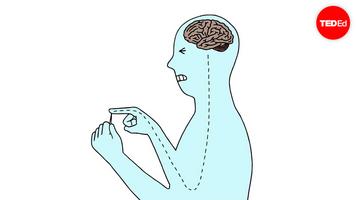
Some people take aspirin or ibuprofen to treat everyday aches and pains but how exactly do the different classes of pain relievers work? Learn about the basic physiology of how humans experience pain and the mechanics of the medicines we've invented to block or circumvent that discomfort. [Lesson by George Zaidan, directed by Hal Lee, narrated b...
George Zaidan: The deadliest thing in your kitchen

Between 2011 and 2022, the deadliest kitchen appliances in the US were ovens and ranges; taking lives by causing fires and leaking carbon monoxide. These kinds of sudden, catastrophic fatalities are thankfully rare. But the kitchen dangers that cause the most casualties may actually be less immediate, and more gradual. George Zaidan explores the...
George Zaidan: How do gas masks actually work?
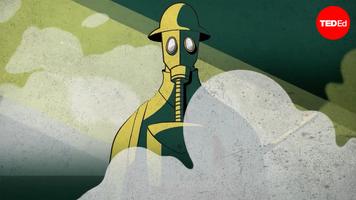
You might think of gas masks as clunky military-looking devices. But in the near future, we may need to rely on these filters as part of our everyday lives. In addition to emerging diseases, wildfire frequency has more than tripled, and climate change has increased toxic ground level ozone. So how do these masks work, and can they protect us fro...
George Zaidan and Charles Morton: How do cancer cells behave differently from healthy ones?
George Zaidan: How close are we to powering the world with nuclear fusion?
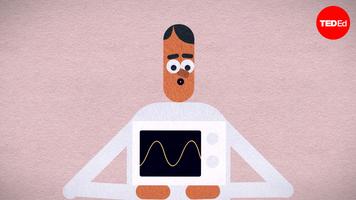
Stars have cores hot and dense enough to force atomic nuclei together, forming larger, heavier nuclei in a process known as fusion. In this process, the mass of the end products is slightly less than the mass of the initial atoms. But that “lost” mass doesn’t disappear — it’s converted to energy ... a lot of energy. So, can we harness this energ...
George Zaidan and Charles Morton: The uncertain location of electrons
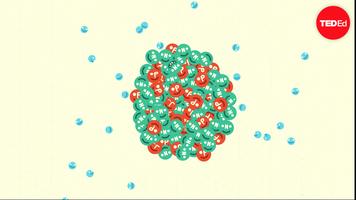
The tiny atoms that make up our world are made up of even tinier protons, neutrons and electrons. Though the number of protons determines an atom's identity, it's the electrons -- specifically, their exact location outside the nucleus -- that particularly perplex scientists. George Zaidan and Charles Morton show how to make an educated guess of ...
George Zaidan: We can prevent the next epidemic
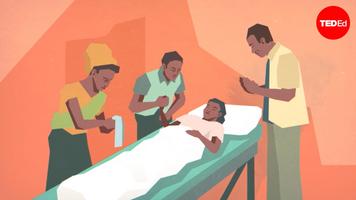
In 2013, an Ebola outbreak began in Guinea. The country had no formal response system and the outbreak became the largest Ebola epidemic in recorded history. Guinea then completely overhauled their response system, and were able to successfully combat another outbreak in 2021. So what does an effective epidemic response look like? George Zaidan ...
George Zaidan: The trillion dollar paradox
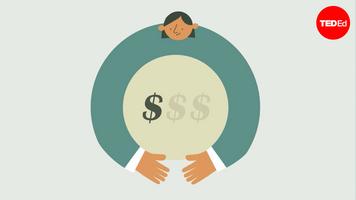
Global warming is very, very expensive: extreme weather, rising sea levels, crop failures, health issues, and industry disruptions all cost money. So, what’s the best way forward? Is the estimated trillion-dollar price tag that comes with transitioning the world to clean energy worth the cost of investment? George Zaidan explores what it would t...
George Zaidan and Sajan Saini: How are microchips made?

Globally, we produce more than a trillion computer chips every year. Which means about 20 trillion transistors are built every second— and this process is done in fewer than 500 fabrication plants. How do we build so many tiny, intricately-connected devices, so incredibly fast? George Zaidan and Sajan Saini explore how photolithography helps bui...
Alex Rosenthal and George Zaidan: The case of the missing fractals
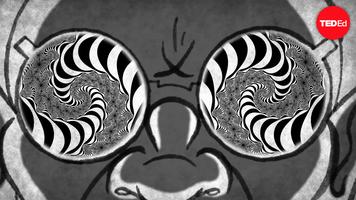
A bump on the head, a mysterious femme fatale and a strange encounter on a windswept peak all add up to a heck of a night for Manny Brot, Private Eye. Watch as he tries his hand at saving the dame and getting the cash! Shudder at the mind-bending geometric riddles! Thrill to the stunning solution of The Case of the Missing Fractals. [Directed by...
Sajan Saini and George Zaidan: Have we reached the limit of computer power?
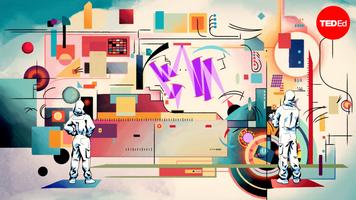
Moore’s Law states that every 1 to 2 years the number of transistors that can fit on a given size computer chip will double. Thanks to this law, chips have gotten smaller, faster, more efficient, and cheaper. But today, there are four key problems that trip up this trend, potentially ending Moore’s Law and fundamentally changing how computing pr...
Kristen Bell + Giant Ant: What is net-zero?
Kristen Bell + Giant Ant: Why is 1.5 degrees such a big deal?
Kristen Bell + Giant Ant: Why act now?
Kristen Bell + Giant Ant: Why is the world warming up?
Kristen Bell + Giant Ant: Where does all the carbon we release go?
TED-Ed: Is inequality inevitable?
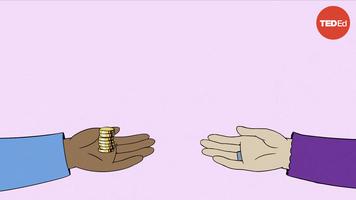
Income and wealth inequality are not new. In fact, economists and historians who have charted economic inequality throughout history haven't found a single society without it. Which raises a bleak question: is inequality ... inevitable? Explore how economic inequality can be measured and how it is impacted by different governmental policy choice...
TED-Ed: How much electricity does it take to power the world?
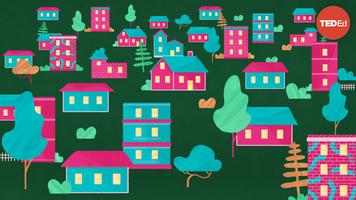
All around the world, millions of people are flipping a switch, plugging in, and pressing an 'on' button every second. So how much electricity does humanity use? And how much will we need in the future? Discover how much energy it takes to power the world, and how clean energy sources could help revolutionize our electricity supply. [Written by ...
TED-Ed: What happens if an engineered virus escapes the lab?
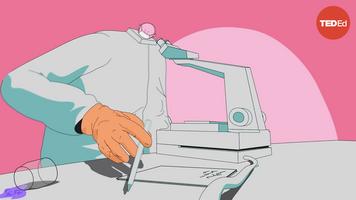
Since the 1970s, researchers have engineered superbugs. While this research could help us prepare for future outbreaks, the stakes of this work are extremely high: if even one dangerous virus escaped a lab, it could cause a global pandemic. So, what can we do to minimize risk? And is the knowledge gained even worth the risk in the first place? D...
TED-Ed: What's the best country to live in?
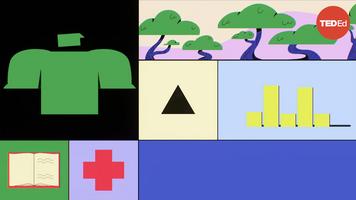
What's the best country to live in? Is it the one with the best food? The longest life expectancy? The best weather? For the past 70 years, most governments have relied heavily on a single number: the Gross Domestic Product, or GDP. But it was never intended for its current purpose; and some argue that we are addicted to making it grow. Explore ...
TED-Ed: What if you experienced every human life in history?

Imagine that your life began as one of the planet's first humans. After dying, you're reincarnated as the second human ever to live. You then return as the third person, the fourth, the fifth, and so on – living the lives of every human that's ever walked the Earth. How will your actions in one life impact your future selves? Explore the ethics ...
TED-Ed: How scientists turn lakes into giant batteries
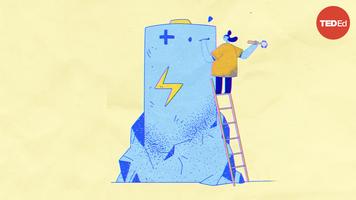
As of 2020, the world's biggest lithium-ion battery is hooked up to the Southern California power grid and can provide enough power for about 250,000 homes. But it's actually not the biggest battery in the world: a pair of lakes are. How can lakes be a battery? Explore how inventors are rethinking what a battery can be, and how these surprising ...
TED-Ed: 3 ways to end a virus
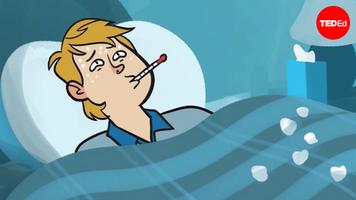
Viruses are wildly successful organisms. There are about 100 million times as many virus particles on Earth as there are stars in the observable universe. Even so, viruses can and do go extinct. So, what is the possibility of the virus that causes COVID-19 going extinct? Explore the three main ways viruses can be driven to extinction. [Directed ...
John C. Moore and Eric Berlow: Dead stuff: The secret ingredient in our food chain
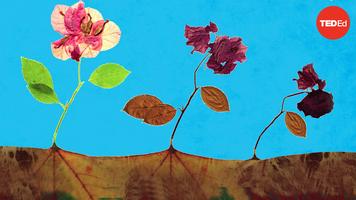
When you picture the lowest levels of the food chain, you might imagine herbivores happily munching on lush, living green plants. But this idyllic image leaves out a huge (and slightly less appetizing) source of nourishment: dead stuff. John C. Moore details the "brown food chain," explaining how such unlikely delicacies as pond scum and animal ...
TED-Ed: Could this technology end all viruses?
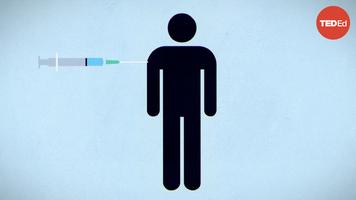
There's a vaccine being developed now that would protect you against every strain of the flu— even ones that don't exist yet. But influenza is constantly mutating, so is a universal vaccine even possible? And how do you design a vaccine that will be effective against future strains? Explore how scientists are developing new ways to help our immu...
TED-Ed: What's the best fuel for your car?
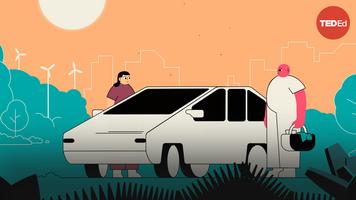
Historically, most cars have run on gasoline, but that doesn't have to be the case in the future: other liquid fuels and electricity can also power cars. So what are the differences between these options? And which one's best? Dig into which fuel— gasoline, electric, biofuels, or electrofuels— is both affordable for consumers and sustainable for...
